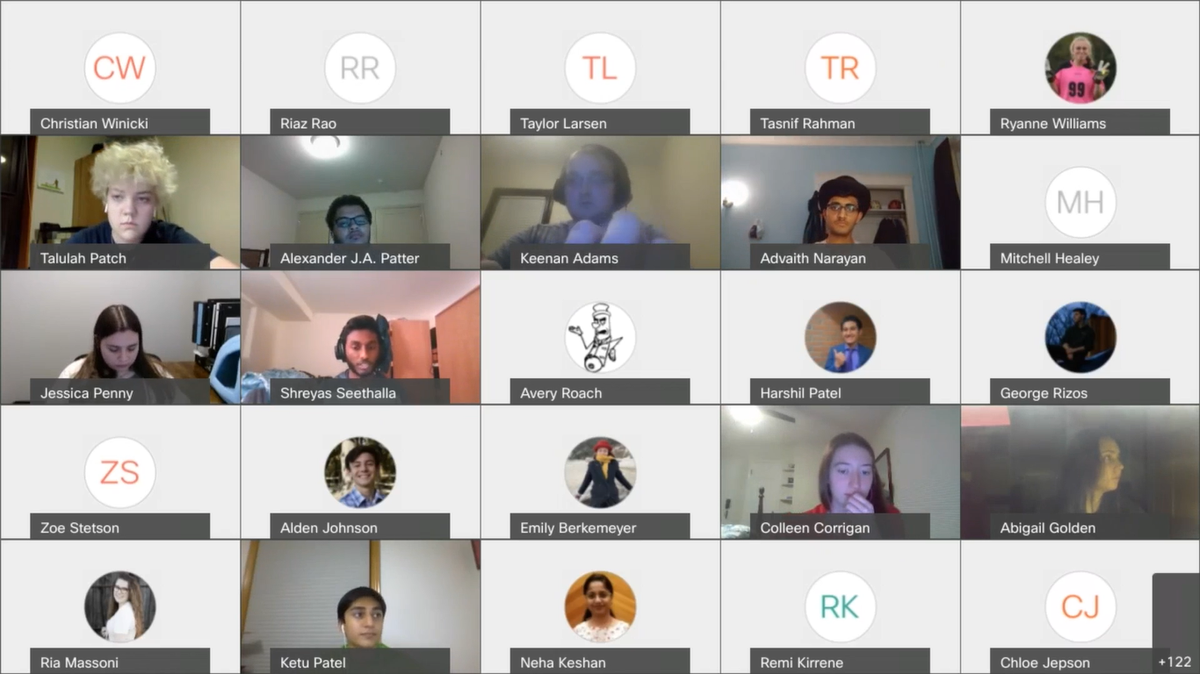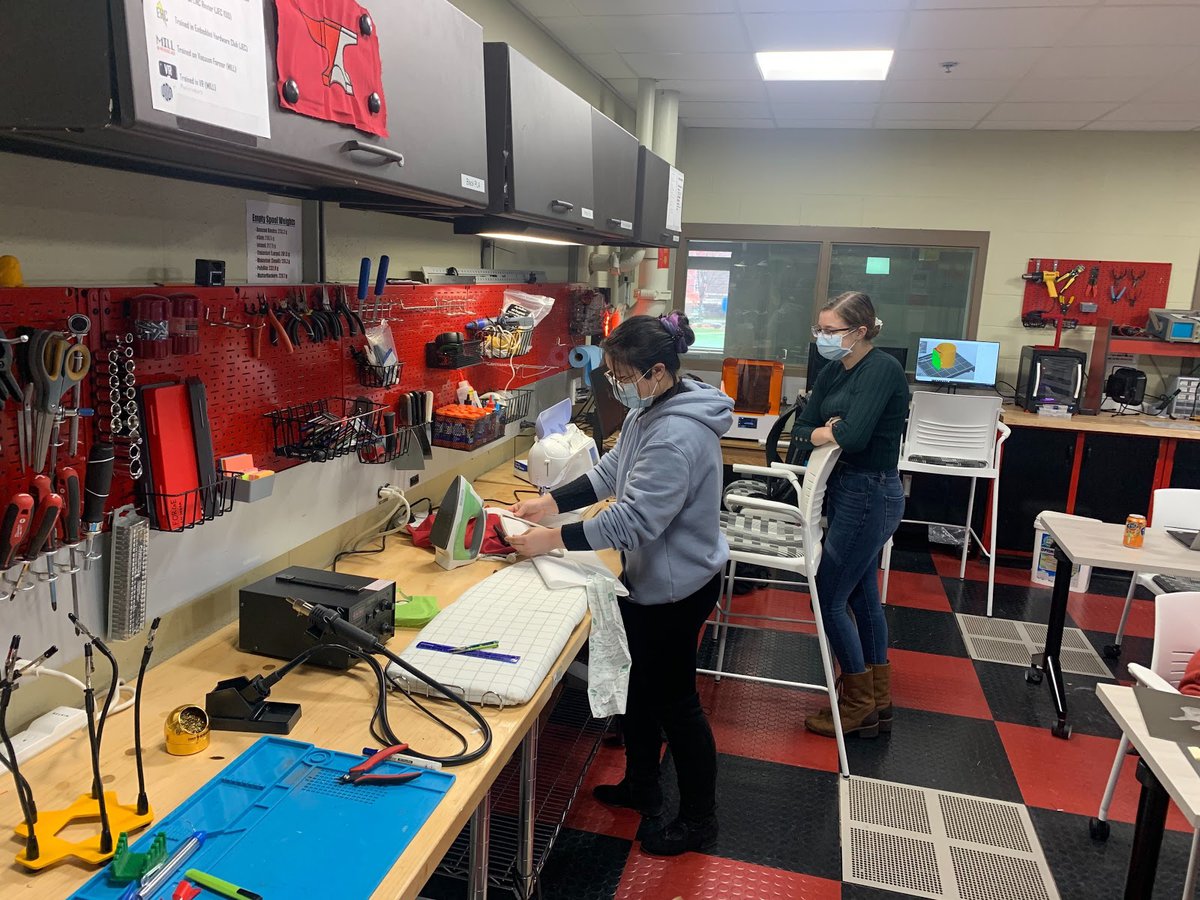Residential students speak out against unsatisfactory quarantine living conditions

The 51st Senate concluded its term with the passing of the ‘Quarantine Communications' motion prompted by the extension of the Trigger Level One quarantine on March 17. In a meeting attended by over 180 people, students discussed a potential refund for the quarantine food, the quality and nutritional value of meals, and outdoor time.
On March 4, Rensselaer’s COVID-19 policy required the campus to close down and students to quarantine for a minimum of two weeks after the number of cases within a two-week period exceeded 30. In the afternoon of the last day of the two-week period, the Institute announced that quarantine would be extended by four days, until March 22. This prompted criticism from on-campus students, primarily freshmen and sophomores, who felt that the notice was last minute and the criteria warranting the quarantine extension unclear.
Class of 2024 Senator Talulah Patch, who introduced the motion to the Senate, explained, “I believe a full explanation of the evidence would serve to satisfy the inquisitive nature of the students and relieve some of the tensions around the late notice.” The Institute informed the student body of their decision to extend the quarantine less than 24 hours before the quarantine was due to end. According to Patch, the “lack of communication up to this point is disturbing and hurtful to the student body as a whole.”
The motion contains four resolves: “To request the release of the statistics and data used to determine the quarantine extension and maintain a public record on the RPI COVID dashboard, to continue working with the Faculty Senate to implement Mental Health Days, to investigate a partial refund of the $6900 meal plan, and to recommend extending supervised outdoor times to the evenings.”
According to former Class of 2024 President Kamilia Nicolas ’24, the Class of 2024 Council “collected data for months from this semester—as well as last semester—on the well-being of our students, where we’ve clearly noted that the mental health of our class is struggling.” One of the reasons for mental health decline, as cited by Nicolas, was the extension of Winter Break and subsequent removal of Spring Break from this semester. “While other colleges and universities participate in mental wellness days for students our students have only had one day off this entire semester,” said former Class of 2023 President Harshil Patel, in advocating for the second resolve to provide students with mental wellness days. Former Vice Grand Marshal Colleen Corrigan ’21 remarked, “[students] can’t get those days off because the Spring and Summer semesters are back to back, so there wouldn’t be a break for people participating in the Arch.” A solution proposed by the Faculty Senate is to provide time off at the individual department level, with some kind of break in the cadence of lectures. Corrigan added that “because this is being done through the Faculty Senate and not being enforced by the school, [the faculty] don’t have the power to enforce it.”
Some students advocated amending the third resolve of the motion to include refunding a proportion of this semester’s tuition in addition to the meal plan. According to Gabriel Tambellini ’24, this would account for “fees for facilities [students] can’t use, low quality food, and inability to access campus and its opportunities.”
Others wanted to remove the resolve to investigate a refund altogether. Graduate Senator Zachary Barringer stated, “I think the goal here is to get people food that meets their dietary needs and is edible, not to try and get a refund. I think you’ll have a hard time getting admin to take that request seriously, and I don’t want that to be the hanging point that admin sticks on then doesn’t respond to the much more actionable parts.” In response, Patch told the Senate that two motions addressing the quarantine food quality and nutritional value already passed through the Senate. The Senate decided not to pass the amendment 4–16–0.
A typical day during the quarantine included an hour of outdoor time in the morning and a half-hour in the afternoon, with an additional hour in the late afternoon or evening on select days. This outdoor time was supervised by RAs, and students were only permitted to stay within designated areas.
According to Nick Schueler ’24, “the experience of living on campus does feel a lot like a prison. We have our yard time, which is pretty epic sometimes, but obviously, we can’t always take advantage of that. For instance, … on Mondays and Thursdays I have classes from 10 am to 4:30 pm.”
Class of 2023 Senator Emily Berkemeyer added, “You cannot go outside of your dorm most days ... I know plenty of people were just praying for the day when they could walk outside and breathe easy without the feeling like they’re constantly being watched,” referring to the group of RAs who supervise students during the outdoor hours.
While the quarantine may now be over, the issues addressed in this motion are still relevant to students who will be participating in Arch this summer. Class of 2023 Senator Emily Berkemeyer, who will be participating in Arch, said “If there is no communication from the administration, the same conditions will continue in the summer, and the summertime is when so many students need to be outside and… need vitamin D.”
The third resolve, which proposes looking into a partial refund for the meal plan, will require further discussion, according to Class of 2024 Representative Ben Viner. He said “Passing the motion without this resolve would not do anything. We’ve been in quarantine in total for four weeks, at least, and we’ve had four weeks of these meals, which have not been nutritious and have not been good, and we’re paying for it the same amount we’d pay for any other food.” The Institute extended outdoor time to 12 pm–4 pm for the last two days of quarantine.

 Club Spotlight
Club Spotlight